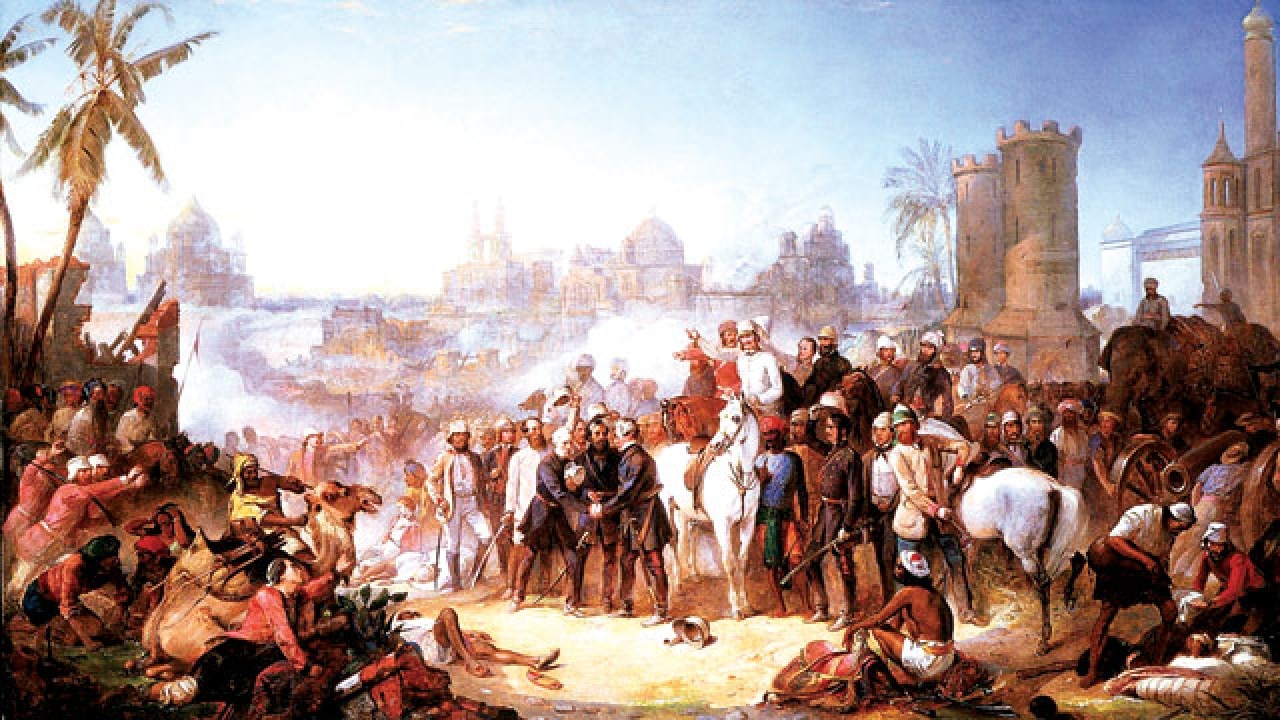
May 10 has come and gone and one sees little mention of the dates and what they represent. It was on May 10, 1857, that the uprising of the Indian soldiers in the service of the East India Company began in real earnest. In less than 40 hours later, they had driven out the last vestiges of British presence from Delhi. This was the beginning of the First War of Independence. A time when ill-equipped Indian soldiers, supported by the peasantry, common people and by other soldiers deserting those who had pledged loyalty to the British, had begun to dream of freedom.
It was in this short period, barely lasting four months that the idea of a nation free from the yoke of subjugation to Imperialism was born and took root. It was one of the few occasions in world history when a part, even though a very small part, of the elite, had joined a revolt initiated and led by plebeians — rebel sepoys and sons of peasants supported by poor peasants.
It was not as if the entire feudal elite had found common cause with the rebels; in fact, only a handful of the hundreds of feudals, big and small, chose to swim or sink with the rebels. The overwhelming majority of the rajas, ranas, maharajas, nawabs and sardars stuck with the British in a remarkable display of opportunism coupled with sheer lack of patriotism.
History is a scientific study of the past and not a speculative discipline of baseless assumptions as it is currently sought to be presented. Still, a bit of “what if” is not likely to stir up too many hurt emotions, not after 160 years of the event.
Imagine the fate of East India Company and of British Imperialism’s dreams of world domination, had all the feudals from Rajasthan, Gujarat, Punjab, Central India, the Deccan, Maharashtra, Hyderabad, Mysore etc stopped sucking up to the British and joined forces with the rebels? Try to imagine the course of the First War of Independence, had these worthies joined forces with the sepoys and with Bahadur Shah Zafar, Rani Jhansi, Hazrat Mahal, Birjees Qadr, Nana Saheb of Bithoor, Kunwar Sen, Tantiya Tope and other nobles and feudals who had joined the revolt.
That, as we know did not happen and because they sided with the Company, the British were able to crush the revolt in a little over four months. Terrible retribution was visited upon the people of India; there were 130,000 soldiers in the Bengal Army of which 125,000 are believed to have joined the rebels.
Many of those who sided with the rebels were killed in the various battles big and small that were fought, including, the ones at Agra, Mathura, Bharatpur, Kanpur, Bashiratgunj, Bithoor, Lucknow, Allahabad, Jhansi, Gwalior, Indore, Rohtak, Badli Ki Sarai, Kashmiri Gate, Betwa, Jhansi, Kalpi, Nawabgunj, Kotah ki Sarai and others.
The killings did not stop with the recapture of Delhi by the British. Delhi saw thousands being tied to cannons and blasted to smithereens or hung on the gallows, denied cremation or burial and the city forced to see her dead being torn to pieces by vultures and crows. Ghalib, who lived through all this, has recorded it in numerous letters.
Over the next two years, the rebel soldiers who had gone back to their villages after the crushing of the rebellion were hunted down, each one declared guilty of deserting the army and executed on the orders of the kangaroo courts posing as courts martial. Each one of the nobles, nawabs and rajas who had joined the cause of the rebels and was captured by the British was executed. A trading company that had sought permission from Jahangir in 1615 to set up a trading post at Surat had the temerity 242 years later to try a descendent of that benefactor for treason and sent him on exile. And what of those sections of the so-called nobility who not only betrayed India in 1857, but continued to be the loyal servants of the British over the next 90 years and carry on in India even today, calling themselves rajas and maharajas and getting roads named after them. What a terrible insult to the memory of the martyrs of one of the most glorious chapters in our struggle against Imperialism.
The author is a historian and organises the Delhi Heritage Walks for children and adults